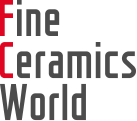Fine Ceramics, sometimes referred to as "advanced ceramics," are engineered materials that support the development of cutting-edge technology.
Fine Ceramics at Work in Semiconductor Manufacturing Equipment
Required for Personal Computers/Smartphones
Fine Ceramics are integral to semiconductor manufacturing equipment
Fine Ceramics support a comfortable lifestyle
The truth about the semiconductor industry, known as the key industry in the modern world
Integrated circuits, known as semiconductors, can be found in products that we use frequently in our daily lives. Though perhaps most well known for their use in personal computers, semiconductors are also widely incorporated into cars, smartphones, TVs, washing machines, refrigerators and other everyday appliances in order to add more convenient functions which would deteriorate without the application of semiconductors. In addition, it might be impossible to produce industrial products without semiconductors because the machines used to manufacture industrial products also rely on semiconductor technology. It is not an exaggeration to say that we are only able to live comfortably thanks to the support of semiconductors.
![]()
Fine Ceramics are integral to semiconductor manufacturing equipment
The process of manufacturing semiconductors includes a harsh environment where plasma is generated. Therefore, plasma corrosion resistance is an essential property for components in semiconductor manufacturing equipment, because it will introduce contamination of unintended impurities into the semiconductors, leading to defective products. This is why highly-reliable Fine Ceramics with excellent plasma resistance are more suitable for the semiconductor manufacturing process than resins, glass, and metals.
Major Fine Ceramic components play essential roles inside semiconductor manufacturing equipment
Through the full utilization of superior plasma resistance, one of the features of Fine Ceramics, a variety of Fine Ceramic components are actively employed in the harsh environment where plasma is generated.
![]()
Enhanced performance of semiconductors requires higher durability in semiconductor manufacturing equipment
With the improved performance of semiconductors year after year, their manufacturing equipment also continues to evolve. This is demonstrated by higher performance requirements for the components in semiconductor manufacturing equipment, such as higher durability to intense plasma used at higher temperatures. As a result, conventional parts made from materials such as resin, glass, and metal are being replaced with Fine Ceramic components.
If you want to use ceramics in business, click here.
Kyocera's Fine Ceramics products (All websites below open in a separate window.)
Product Category
 Semiconductor / LCD Processing Equipment
Semiconductor / LCD Processing Equipment
 Life / Culture / Industrial Machines
Life / Culture / Industrial Machines
 Wireless Communications
Wireless Communications
 Computer Peripherals
Computer Peripherals
 Environmental Preservation / Renewable Energy
Environmental Preservation / Renewable Energy
 Medical Equipment / Devices
Medical Equipment / Devices
 Single-Crystal Sapphire Products
Single-Crystal Sapphire Products
 Metallized / Vacuum Components
Metallized / Vacuum Components
 Electronics Industry
Electronics Industry
 Heaters
Heaters
 Piezoelectric Ceramics
Piezoelectric Ceramics
Search by Material
 Alumina
Alumina
 Silicon Nitride
Silicon Nitride
 Silicon Carbide
Silicon Carbide
 Sapphire
Sapphire
 Zirconia
Zirconia
 Cordierite
Cordierite
 Yttria
Yttria
 Aluminum Nitride
Aluminum Nitride
 Cermet
Cermet
 Mullite
Mullite
 Steatite
Steatite
 Forsterite
Forsterite
Search by Property/Characteristic


- Thermal Properties
- Coefficient of Thermal Expansion
- Thermal Conductivity
- Heat Shock Resistance

- Electrical Properties
- Insulation / Semiconductivity

- Chemical Properties
- Chemical Resistance






